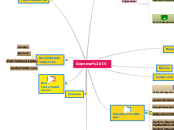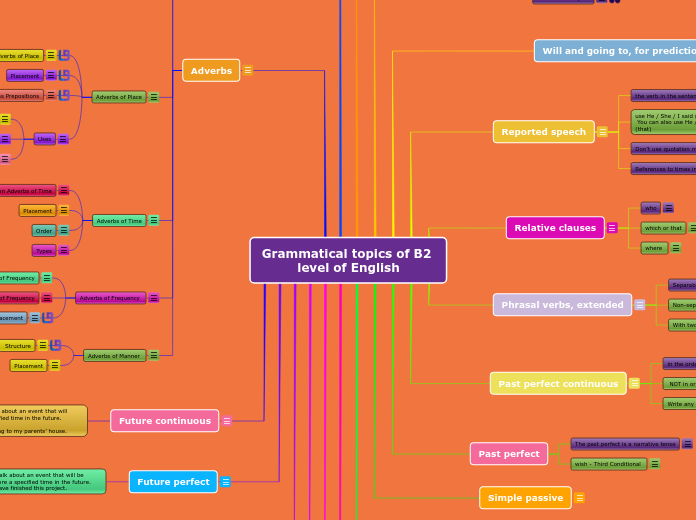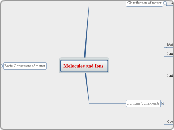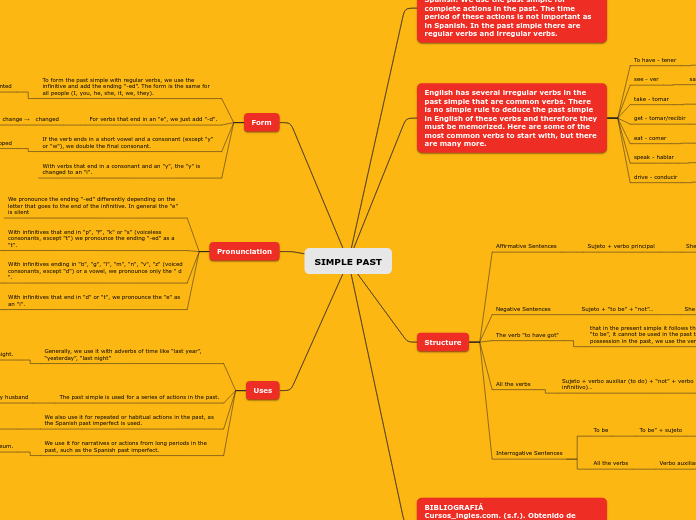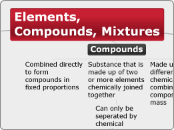Grammar IV
phrases
A Phrase is a group of related words that does not contain a subject and a verb.
Example: Gone to santiago, i heard of the robbery.
A clause is a group of related words that contains a subject and a verb.
Example: He failed because he did not study.
Non-finite clauses
A non-finite clause is a subordinate clause that has only a non-finite verb.
Non finite verbs
A non finite verb does not indicate a tense.
In fact, Infinitive, participles, past participles and verbal nouns are non-finite verbs.
1-Example: To play soccer ,you need boots.
2 - Example: Playing chess is difficult.
3 - Example: Annoyed, he went back home.
4 - Example: Running is a nice sport.
5 - The decision made by him was overruled.
Verbal noun
Past participles
Gerund
Infinitive
Finite verbs
A finite verb is a verb that indicates tenses.
Example: She lives in chillan
Example: He went to the city to find work.
Example: My mother bakes tasty cookies.
Clauses
collocation types
A collocation is a pair or group of words that are often together.
Adverbs and adjectives
Verb and adverb
Verb and an expression with preposition
Adjective and noun
Nouns and adverbs
noun and noun
Collocationtypes and examples
Compound
Compounds are unit of meaning formed with two or more words separated with hyphen or written as one.
Examples:
worksheet
post office
shoelaces
sometimes
cannot
teapot
basketball
Idioms
Idiom: It is a fixed group of words that mean something different to the meaning of the individual words.
Examples:
- It is raining cats and dogs: It is rainining a lot.
- to pass the buck: to ship responsibility or blame onto other people.
- Turn a blind eye: you know people might be doing something wrong, but you ignore it.
Register
INFORMAL FORMAL
He went down with a fever. He contracted a fever
2 .The cost of living went up . The cost of living increased.
3 . She caught on very quickly. She understood very quickly.
Formal
Informal
Verbs
Subjunctive
The subjunctive mood expresses wishes, conditions contrary to facts, and requests or commands.
Example 1: If I were you ,I would not go out tonight.
Example 2: It is time you paid the rent.
Past Subjuntive
Present subjunctive
Formulaic Subjunctive
Mandative Subjunctive
Example: It is important for them be here tomorrow at 7:00.
Unreal time and Subjunctive
Specific words or expressions are generally used such as:
It´s time, it ´shigh time. These are followed by past simple or past continuous. Example: It´s time you paid de rent.
Wish, to express wishes in present or future.
Would is used tomake someone or something else to change.
Example: I wish he would stop crying all the time.
I´d rather / prefer. They are followed by past verb forms.
Example: I rather you did not come to my party.
I´d rather / I´d sooner are used with normal verb forms when comparing nouns or phrases.
Example: I rather eat a sandwich than pasta.
As if, as though are used for real and unreal situations.
Imperative
The Imperative mood expresses direct requests or commands.
Example 1: Keep the sound of music down.
Example 2: Take out your your notebook.
Example 3: Stand up.
The Indicative
Indicative mood expresses statements of facts or questions.
Example: The Parliament passed the Law dealing with Abortion.
Example2: He settled in Brazil for part of his holidays.
Example 3: Are you going to travel next summer?
